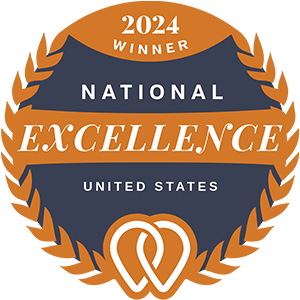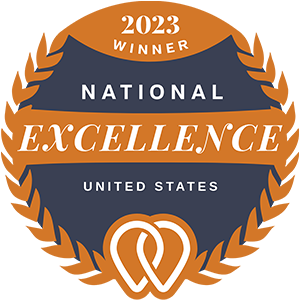“Thanks to them, we appear on the first page when searched on Google, we dominate our space.” – Jay E.
DENVER’S MOSTTRUSTED SEO AGENCY
Firestarter SEO has been providing Denver SEO Services for over 12 years. We have created and executed countless search engine optimization strategies delivering massive ROI for our clients making us the Denver CO most trusted SEO company.
Meet Our Happy Denver SEO Clients
What Our Client’s Say
We’ve earned 4.8 stars on Google and 4.9 stars on Clutch and are currently ranked the #2 Denver SEO Agency by Clutch. Don’t take our word for it see what our clients have to say:
EFFECTIVE SEO THAT DELIVERS RESULTS FOR DENVER BUSINESSES
Our five-point SEO strategies are created uniquely for each of our clients’ businesses. Our strategies use a framework that focus on uncovering ‘intent-based’ keywords potential customers use to find businesses like yours and then ranking them with our proven link building strategies. While other digital marketing agencies only site traffic – we care about high-quality leads, enquiries or sales made online.
OUR PROVEN 5 POINT SEO STRATEGY.


Analyze and Audit
The initial status of your SEO is critical. Gathering a full understanding of your website and what marketing services have been executed in the past gives us the details needed to create a successful, customized blueprint for success around your desired results. As we explore your website’s content, doing keyword research and a link profile analysis we are able to pinpoint any critical obstacles that may exist.
Analyze and Audit

Plan And Strategize
After gathering the information from our in-depth audit, we create the roadmap to fuel your results. While we do follow a tried and true framework for implementation, each client and each SEO campaign is unique and requires special attention. With this in mind, the fuel we use for results is uniquely crafted to fit the needs of the campaign itself. The foundation of our SEO campaigns are centered around keywords. We then design an advanced link building strategy around these keywords and what links the domain lacks.
Plan And Strategize

Implement
Once the foundation is established and we have a comprehensive understanding of the opportunity your domain possesses, we begin the implementation phase. We start with the essential on-site SEO elements, including title tags, meta descriptions, site architecture, interlinking pages, and more, all while creating unique, engaging, and highly linkable content. This focus lets results accelerate initially and sets the stage for continued success with the support of our efforts.
Implement

Link Building
Your link profile is similar to a book of references with Google. Our natural and authoritative link building campaigns rely on a quality over quantity mentality. Most of the time spent on link building centers around creating unique and useful content, content marketing,, and then finding relevant websites which Google trusts to place content on. We constantly monitor your link building campaign for maximum effectiveness.
Link Building

Monitor & Report
The best systems in the world are nothing if they lack transparency and an advanced SEO campaign is no different. We want to give you the opportunity to have ownership of your campaign and our monthly reports and reporting dashboard do just that. Our custom monthly reports feature rankings, traffic, new links, task reports and more. Each of our clients also has regular access to their reporting dashboard to view different time frames and instant results. This process allows you to understand the efforts taking place within the campaign, and allows us to fine tune your campaign on the fly.
Monitor & Report
Analyze and Audit

Analyze and Audit
The initial status of your SEO is critical. Gathering a full understanding of your website and what marketing services have been executed in the past gives us the details needed to create a successful, customized blueprint for success around your desired results. As we explore your website’s content, doing keyword research and a link profile analysis we are able to pinpoint any critical obstacles that may exist.
Plan And Strategize

Plan And Strategize
After gathering the information from our in-depth audit, we create the roadmap to fuel your results. While we do follow a tried and true framework for implementation, each client and each SEO campaign is unique and requires special attention. With this in mind, the fuel we use for results is uniquely crafted to fit the needs of the campaign itself. The foundation of our SEO campaigns are centered around keywords. We then design an advanced link building strategy around these keywords and what links the domain lacks.
Implement

Implement
Once the foundation is established and we have a comprehensive understanding of the opportunity your domain possesses, we begin the implementation phase. We start with the essential on-site SEO elements, including title tags, meta descriptions, site architecture, interlinking pages, and more, all while creating unique, engaging, and highly linkable content. This focus lets results accelerate initially and sets the stage for continued success with the support of our efforts.
Link Building

Link Building
Your link profile is similar to a book of references with Google. Our natural and authoritative link building campaigns rely on a quality over quantity mentality. Most of the time spent on link building centers around creating unique and useful content, content marketing,, and then finding relevant websites which Google trusts to place content on. We constantly monitor your link building campaign for maximum effectiveness.
Monitor & Report

Monitor & Report
The best systems in the world are nothing if they lack transparency and an advanced SEO campaign is no different. We want to give you the opportunity to have ownership of your campaign and our monthly reports and reporting dashboard do just that. Our custom monthly reports feature rankings, traffic, new links, task reports and more. Each of our clients also has regular access to their reporting dashboard to view different time frames and instant results. This process allows you to understand the efforts taking place within the campaign, and allows us to fine tune your campaign on the fly.



























